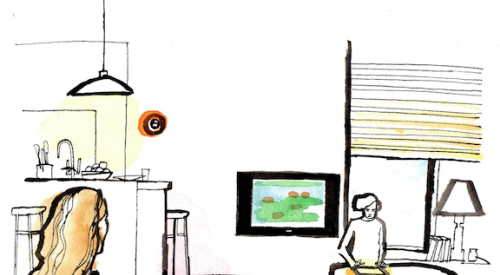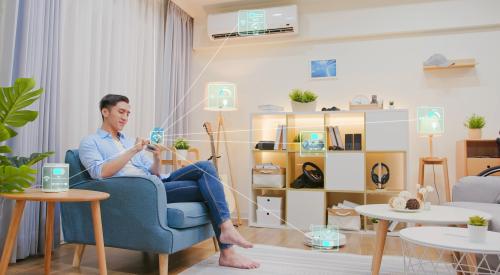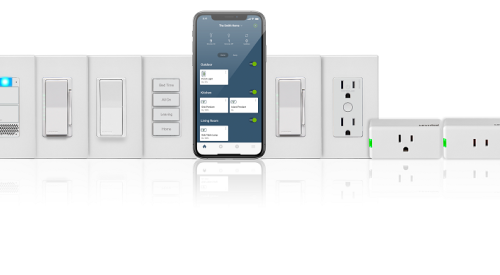More and more, builders are considering adding smart home products to their new homes as an option or standard. But a recent story in The New York Times raises questions about ethics and responsibility regarding the devices. The piece tells of people whose partners used smart home technology as a tool of abuse: changing lock passwords, turning up the thermostat, cranking the music at odd hours. Image: Flickr user Andrew W. Rennie (CC BY-SA 2.0)
It’s common for partners to each take ownership of certain aspects of household maintenance. But at a time when Alexa does what we ask and builders are under pressure to feature the latest in everything, where does responsibility begin and end when offering a product that both must ensure its occupants’ safety and offer ease of remote use?
“Clearly, we have some work to do,” says Joan Webb, chief marketing officer of The New Home Company, in Aliso Viejo, Calif., a builder at the vanguard of buyer trends and preferences. Webb was struck by the lack of catchall fixes available for blocking users and changing settings and says she has committed to working with suppliers and integrators so that safeguards are installed—and understood—by consumers.
As VP of innovation for Meritage Homes, in Scottsdale, Ariz., CR Herro has put a lot of thought and research into smart homes. “I’m not your typical user,” he admits, yet he also speaks from experience: “I went through a nasty breakup and quickly resecured my house. Historically, it would have been a lot of trouble. It’s an enabling technology, but it does require people to be more sophisticated.”
With electronic devices, abusers can manipulate multiple areas of their target’s life. “There’s a developing ethical responsibility to ensure that the intelligence isn’t in the hands of one party,” says David Ryan Polgar, a lawyer and tech ethicist in New York.
Consumer education about using the same common sense as with car keys or banking is essential. One builder notes that security breaches have become a blame game. He stresses user vigilance. Keeping track of passwords is cumbersome, but apps such as LastPass and OnePass offer an encrypted vault for passwords and usernames, allowing for quick changes and easy reference.
Never considered the Internet of Things a tool of domestic abuse? Neither had we. Upset to learn of vulnerable people who didn’t take possession of passwords? So are we. A smart home is akin to an appliance, and homeowners should receive full instruction on safe and responsible use.













